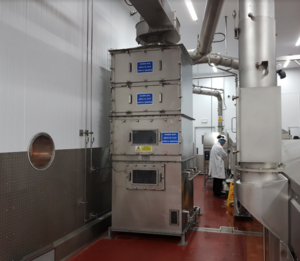BTC Europe GmbH and NXTLEVVEL Biochem have recently signed an agreement on the distribution of biobased and biodegradable solvents derived from levulinic acid for the European market. Levulinic acid can serve as a versatile building block for chemicals and materials derived directly from biomass. Due to their broad solvency power, low volatility, high safety profile and biodegradability levulinate solvents offer a sustainable alternative to solvents based on fossil feedstock for a wide range of applications.
Based on non-food crop biomass
Both companies seek to leverage their expertise and industrial know-how to respond to the high demand for more sustainable and low-emission products on the European market and enable customers to make more environmentally friendly decisions in their procurement and development processes. Through the cooperation, customers will have access to resource-efficient solutions derived from non-food crop biomass with which they can reduce their carbon footprint and secure long-term sustainable competitive advantages.
“Enriching our portfolio with complementary, sustainable and resource-efficient solutions is a core pillar of our strategy. The cooperation with NXTLEVVEL Biochem will create new opportunities for future growth and strengthen our position in the European distribution business,” says Jose Corral Montilla, Managing Director at BTC Europe GmbH. “Building on the enhanced portfolio, we will offer our customers solutions based on circular feedstock that help to meet fast changing market requirements and that in turn create added value for our customers’ customers,” adds Jose Corral Montilla.
“Together, we can seize new market potentials for levulinate solvents by combining the strength of our products with BTC Europe’s strong position on the European chemical distribution market,” says Aris de Rijke, Chief Executive Officer at NXTLEVVEL Biochem. “Leveraging proprietary technology from GFBiochemicals, we produce levulinate derivatives at industrial scale and serve markets with a high demand for biobased chemicals such as industrial & institutional cleaning, home and personal care, but also coatings and agriculture.”
























































